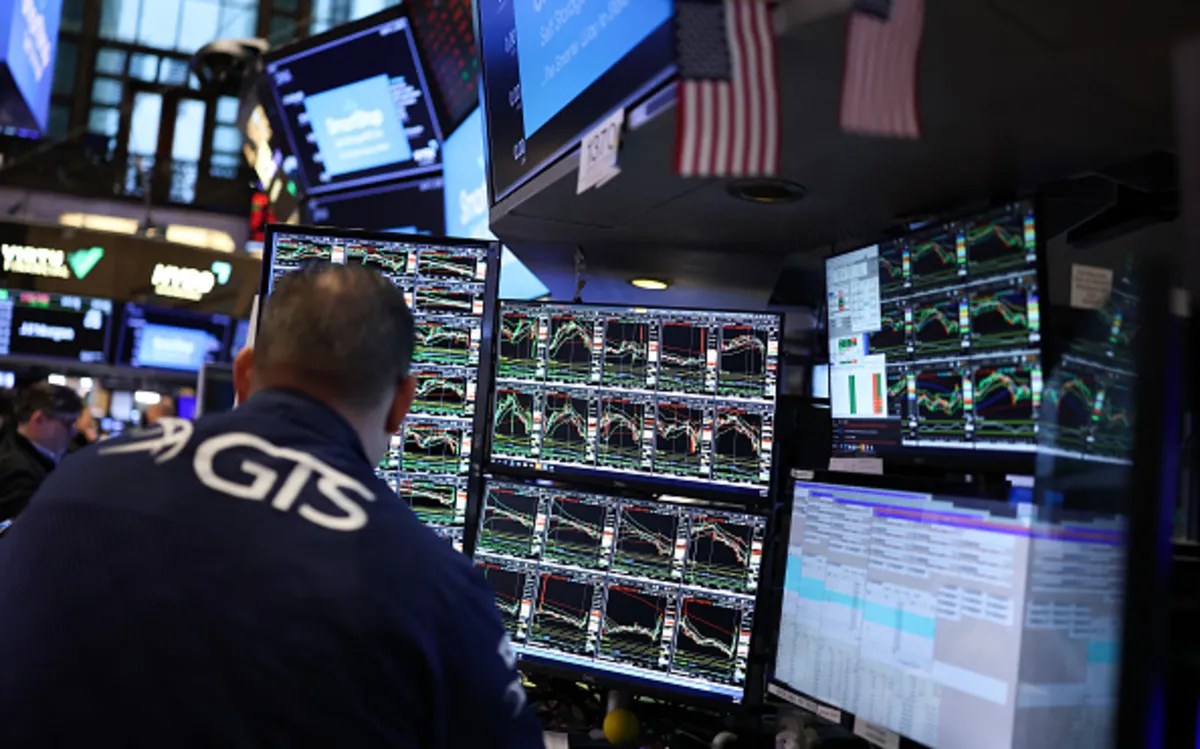
In a significant development, European Commission President Ursula von der Leyen announced on Thursday that the European Union will temporarily halt countermeasures against President Donald Trump’s latest tariffs. This pause will last for 90 days, allowing time for negotiations to unfold. Von der Leyen took to social media platform X to express the EU's stance, stating, “We took note of the announcement by President Trump. We want to give negotiations a chance.”
While the EU was finalizing the adoption of countermeasures, which had garnered strong support from its Member States, Von der Leyen emphasized the importance of diplomacy, saying, “If negotiations are not satisfactory, our countermeasures will kick in.” She reiterated that “all options remain on the table,” indicating a strategic approach towards the ongoing trade tensions.
The announcement from President Trump to pause most of his tariffs has had a noticeable effect on the financial markets. Following his statement, Citigroup upgraded its recommendation on both U.S. and European equities to 'overweight', as reported by Reuters. This upgrade reflects a renewed optimism in the market after a turbulent period since the tariffs went into effect, particularly because of the pause on tariffs for nations willing to negotiate.
However, during this time, Trump has implemented significant tariffs on China, raising them by 125%. This move has amplified the ongoing trade conflict between the two superpowers, raising concerns among investors about future implications for the global economy.
In related news, President Trump has expressed willingness to provide exemptions for certain U.S. companies adversely affected by the tariffs. He stated, “I’ll take a look at it as time goes by,” indicating a flexible approach to tariff implementation. When pressed on how he would determine which companies might receive exemptions, Trump mentioned that it would be more of an “instinct” rather than a systematic evaluation.
This potential flexibility aims to address industries that have been disproportionately impacted by the tariffs, illustrating Trump’s ongoing efforts to balance economic growth with trade policies.
Further highlighting the economic climate, President Trump announced that his administration has attracted over $7 trillion in private investments since taking office. This influx includes major commitments from Apple, Eli Lilly, and Stargate, alongside investments from countries such as Saudi Arabia, the United Arab Emirates, and Japan. Trump noted that Apple is set to invest $500 billion, while Stargate has committed a similar sum for the development of data centers focused on artificial intelligence.
Additionally, semiconductor giant Taiwan Semiconductor Manufacturing Co. has pledged $100 billion for U.S. operations, while NVIDIA is investing $200 billion. Such investments indicate a robust confidence in the U.S. economy despite ongoing trade disputes.
In a strategic move, Apple has reportedly arranged cargo flights to transport 600 tons of iPhones from India to the U.S. This initiative aims to mitigate the impact of the tariffs imposed by Trump. According to Reuters, this effort will help build the U.S. inventory of iPhones, although analysts warn that prices could still rise due to ongoing import connections with China.
Since March, approximately six cargo jets, each with a capacity of 100 tons, have been utilized for this operation, resulting in the transportation of about 1.5 million iPhones. To meet this production goal, Apple has increased its workforce and extended operational hours at its major Foxconn factory in India.
Amid escalating trade tensions, Ray Dalio, founder of Bridgewater Associates, urged the U.S. to engage in negotiations with China. In a post on X, he emphasized the necessity of reevaluating the current approach to trade imbalances and unsustainable debt. Dalio’s comments come in light of Trump’s recent tariff increases on Chinese goods, which have raised the stakes in the ongoing trade war.
Trump's recent announcement of a 104% levy on Chinese imports has heightened tensions, particularly after China retaliated with a 50% increase in its tariffs, bringing the total to 84%. The Chinese finance ministry has expressed that the escalating tariffs reflect a series of mistakes, urging a return to dialogue based on mutual respect.
In an interview on 'Mornings with Maria', Senator Bill Hagerty (R-Tenn.) discussed the current state of trade negotiations between the U.S. and China, asserting that China “should have seen it coming.” He emphasized that there exists an opportunity to correct the trade situation and acknowledged Japan’s role in these discussions, noting its welcome stance towards the pause on tariffs.
Hagerty highlighted the need for broader discussions that go beyond trade, suggesting that enhancing the U.S.-Japan defense relationship could lead to more integrated economies. He expressed optimism about potential breakthroughs in ongoing negotiations.
The current landscape of U.S.-EU trade relations is being shaped by strategic pauses and negotiations amid escalating tariffs. With both sides indicating a willingness to engage in dialogue, the coming weeks will be critical in determining the future of trade policies and economic stability.